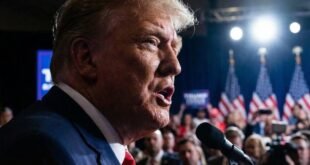This article may contain commentary which reflects the author’s opinion.
In the unforgiving world of late-night television, where careers can be made or destroyed by a single ill-chosen joke, one of America’s most recognizable comedic voices finds himself at the center of a controversy that has sent shockwaves through the entertainment industry. What began as commentary on a national tragedy has spiraled into a crisis that threatens to reshape not just one comedian’s future, but the very landscape of political discourse in American media.
The fallout from a few sentences spoken on live television has created unprecedented consequences, with major broadcast companies making decisions that could forever alter the relationship between entertainment and political commentary. Behind closed doors, industry insiders are grappling with questions that extend far beyond one show or one host, as the entertainment establishment confronts the limits of acceptable discourse in an increasingly polarized America.
The Moment That Changed Everything
The controversy that has engulfed Jimmy Kimmel began with what seemed like routine political commentary during his late-night show. In the aftermath of Charlie Kirk’s assassination, Kimmel delivered remarks that would prove to be career-defining in the worst possible way.
“We hit some new lows over the weekend with the MAGA gang desperately trying to characterize this kid who murdered Charlie Kirk as anything other than one of them and doing everything they can to score political points from it,” Kimmel stated during what would become his final broadcast for the foreseeable future.
These words, spoken with the confidence of a comedian accustomed to pushing boundaries and challenging political figures, contained a factual error that would prove catastrophic. The assertion that 22-year-old Tyler Robinson, the accused killer, was connected to the MAGA movement was not only incorrect but demonstrably false, according to law enforcement authorities who described Robinson as holding leftist political views.
The mistake was not a minor detail or a matter of interpretation – it was a fundamental mischaracterization of established facts in a case that had captured national attention. In an era where misinformation has become a central concern in American politics, Kimmel’s error struck at the heart of ongoing debates about media responsibility and the spread of false information.
The timing of the comments made them particularly damaging. Speaking just days after Kirk’s murder, when emotions were raw and the conservative movement was mourning one of its most prominent voices, Kimmel’s remarks were perceived not just as factually incorrect but as deliberately inflammatory and insensitive.
Disney’s Swift Response
The reaction from Disney, ABC’s parent company, was both swift and severe. Within days of Kimmel’s comments, the entertainment giant made the unprecedented decision to indefinitely suspend “Jimmy Kimmel Live!” – a show that had been a reliable ratings performer and a significant revenue generator for the network.
Disney co-chair Dana Walden reportedly delivered the news to Kimmel personally, informing the veteran host that his show was being terminated after he refused to “kowtow” to what the company characterized as pressure from the MAGA movement. The characterization suggests that Disney offered Kimmel an opportunity to apologize for his comments, an offer that he apparently declined.
The decision to suspend rather than simply issue a correction or apology represented a significant escalation in corporate response to controversial content. Disney’s choice to describe Kimmel’s comments as “ill-timed and insensitive” in official statements indicated that the company viewed the situation as more than just a factual error – they saw it as a fundamental breach of editorial standards and public sensitivity.
The indefinite nature of the suspension has created uncertainty about Kimmel’s future with the network. Unlike a temporary hiatus or a brief disciplinary action, an indefinite suspension suggests that Disney is still evaluating the long-term implications of the controversy and has not committed to Kimmel’s eventual return.
Industry insiders have noted that Disney’s response reflects broader concerns about corporate liability and public relations in an increasingly polarized media environment. The company’s willingness to sideline one of its most recognizable personalities demonstrates the seriousness with which major media corporations are approaching questions of political content and factual accuracy.
The Affiliate Rebellion
The controversy took on new dimensions when major broadcast station groups began announcing their own responses to Kimmel’s comments. Nexstar Media Group and Sinclair Broadcast Group, the two largest owners of ABC affiliate stations, made unprecedented decisions to refuse to air “Jimmy Kimmel Live!” even if Disney chose to reinstate the program.
Nexstar’s statement revealed the depth of concern among local broadcasters about associating with controversial content. “We made a decision last week to preempt ‘Jimmy Kimmel Live!’ following what ABC referred to as Mr. Kimmel’s ‘ill-timed and insensitive’ comments at a critical time in our national discourse,” the company announced.
The statement continued with language that suggested the suspension could be permanent: “We stand by that decision pending assurance that all parties are committed to fostering an environment of respectful, constructive dialogue in the markets we serve.”
Sinclair Broadcast Group, which controls the largest cluster of ABC affiliates nationwide, issued its own statement confirming that it would preempt Kimmel’s show across all its stations. “Beginning Tuesday night, Sinclair will be preempting ‘Jimmy Kimmel Live!’ across our ABC affiliate stations and replacing it with news programming,” the group announced on social media.
The decision by these station groups to act independently of Disney’s programming decisions represents an unusual assertion of local control over network content. Typically, affiliate stations carry network programming without significant editorial interference, making these preemptions particularly noteworthy.
The coordinated nature of these announcements suggests that the station groups had been discussing their response to the Kimmel controversy and had reached similar conclusions about the risks of carrying his program. Their willingness to break with network programming demonstrates the intensity of public reaction to Kimmel’s comments in local markets across the country.
Behind the Scenes: Staff Concerns and Industry Uncertainty
The impact of the controversy extends beyond Kimmel himself to the dozens of staff members who work on his show. An anonymous staffer recently spoke to Rick Ellis for his “Too Much TV” newsletter, revealing the anxiety and uncertainty that pervades the show’s production team.
The staffer’s comments paint a bleak picture of the show’s prospects for returning to the air. “I want to think it will. But I can’t imagine a scenario in which that happens. Even if Jimmy was willing to publicly apologize and donate money to whatever ghoulish conservative group that is demanding it… MAGA people will never be happy. It will never be enough,” the employee said.
This perspective reveals the depth of the challenge facing Kimmel and Disney. The staffer’s assessment suggests that the controversy has created a situation where no reasonable compromise or apology would be sufficient to restore Kimmel’s standing with his critics.
The employee’s prediction about Disney’s likely response reflects broader industry concerns about the financial implications of controversial content. “Disney will look at the situation and decide it’s cheaper to buy out the rest of his contract and replace the show with reruns of Modern Family and Judge Judy. Somehow, they’ll convince themselves the worst is behind them,” the staffer continued.
This analysis highlights the economic calculations that major media companies must make when dealing with controversial personalities. The cost of maintaining Kimmel’s show – including his salary, production expenses, and potential advertiser boycotts – must be weighed against the simpler economics of running less expensive syndicated programming.
The staffer’s reference to other controversial Disney personalities suggests that the Kimmel situation could be part of a broader pattern of corporate risk management. “Until a day or two pass, and they find themselves having to defend Whoopi and the other women of The View. And no one wants to be in that position,” the employee noted, indicating that industry observers see the Kimmel controversy as potentially foreshadowing similar conflicts involving other Disney personalities.
Federal Scrutiny and Regulatory Implications
The controversy has attracted attention from federal regulators, adding a new dimension to what began as a corporate public relations challenge. FCC Chairman Brendan Carr announced that he is considering an investigation into Kimmel and ABC over the factually incorrect comments about Charlie Kirk’s murder.
Carr’s comments during an appearance on conservative podcaster Benny Johnson’s show were particularly harsh in their assessment of Kimmel’s conduct. “When you look at the conduct that has taken place by Jimmy Kimmel, it appears to be some of the sickest conduct possible,” Carr stated, using language that suggested the FCC chairman viewed the situation as more than just a typical broadcasting standards issue.
The FCC chairman’s willingness to consider regulatory action represents an unusual escalation in federal oversight of entertainment programming. While the FCC regularly deals with complaints about broadcast content, investigations into late-night comedy shows are relatively rare, particularly those involving factual claims rather than indecency or profanity.
Carr acknowledged the sensitivity of his position as a potential adjudicator of future proceedings. “As you’ve indicated, there are avenues here for the FCC, so there… are some ways in which I need to be a little bit careful because we could be called ultimately to be a judge on some of these claims that come up,” he explained, indicating that formal proceedings could be forthcoming.
The prospect of federal investigation adds significant complexity to an already difficult situation for Disney and Kimmel. Regulatory scrutiny could extend the controversy far beyond its current scope and create additional legal and financial risks for all parties involved.
The FCC’s interest in the case also reflects broader federal concerns about misinformation and media responsibility in the current political environment. The agency’s willingness to consider action against a major entertainment program suggests that regulatory authorities are taking an increasingly active role in policing factual accuracy in broadcast content.
The Broader Context: Media, Politics, and Accountability
The Kimmel controversy unfolds against a backdrop of heightened sensitivity about political violence and media responsibility in American society. Charlie Kirk’s assassination shocked the conservative movement and raised questions about the safety of political figures and commentators across the ideological spectrum.
In this context, Kimmel’s factually incorrect characterization of the alleged killer’s political affiliations touched on some of the most sensitive issues in contemporary American politics. The suggestion that a politically motivated murder was committed by a supporter of a particular movement – when evidence indicated the opposite – represented exactly the kind of misinformation that has been blamed for contributing to political polarization and violence.
The entertainment industry’s response to the controversy reflects broader struggles within media organizations about how to balance editorial freedom with corporate responsibility. Late-night comedy shows have traditionally enjoyed significant latitude in their political commentary, but the Kimmel situation suggests that this freedom may be subject to new limitations in an era of heightened political sensitivity.
The willingness of affiliate stations to break with network programming over content concerns represents a potentially significant shift in the relationship between national networks and local broadcasters. If local stations begin regularly exercising editorial control over network content, it could fundamentally alter how programming decisions are made and distributed across the country.
Industry Implications and Future Considerations
The long-term implications of the Kimmel controversy extend far beyond one comedian’s career prospects. The entertainment industry is closely watching how Disney handles the situation, as the company’s response could establish precedents for how major media corporations deal with similar controversies in the future.
The financial calculations involved in the Kimmel situation are particularly significant for other entertainment personalities and their corporate employers. If major companies determine that the risks of controversial political commentary outweigh the benefits, it could lead to more restrictive content policies across the industry.
The role of affiliate stations in content decisions could also evolve as a result of this controversy. If local broadcasters successfully assert greater control over network programming, it could create a more fragmented media landscape where content availability varies significantly by geographic region.
The federal regulatory interest in the case could also have broader implications for entertainment programming. If the FCC begins more actively investigating factual claims made in entertainment content, it could create new compliance requirements and editorial constraints for broadcasters across the industry.
The Road Ahead: Uncertain Prospects
As the controversy continues to unfold, multiple stakeholders face difficult decisions about how to proceed. Disney must weigh the costs and benefits of maintaining its relationship with Kimmel against the potential risks of continued association with controversial content.
Kimmel himself faces the challenge of rebuilding his career and reputation in an industry that may have become more risk-averse as a result of his situation. The comedian’s refusal to apologize, while maintaining his principles, has also limited his options for resolving the controversy quickly.
The affiliate stations that have refused to carry Kimmel’s program must consider whether their position is sustainable in the long term, particularly if Disney decides to reinstate the show and other affiliates choose to carry it.
Federal regulators must determine how to balance their oversight responsibilities with traditional protections for editorial freedom and entertainment content. The FCC’s handling of the Kimmel investigation could establish important precedents for future cases involving factual claims in entertainment programming.
Conclusion: A Defining Moment
The Jimmy Kimmel controversy represents more than just one comedian’s professional crisis – it reflects broader tensions about media responsibility, political discourse, and corporate accountability in contemporary America. The unprecedented nature of the response from Disney, affiliate stations, and federal regulators suggests that this case could mark a turning point in how the entertainment industry approaches political content.
The ultimate resolution of the controversy will likely have lasting implications for late-night comedy, political commentary, and the relationship between entertainment and journalism. Whether Kimmel returns to the airwaves or his career becomes a cautionary tale, the case has already demonstrated the new realities facing entertainers who choose to engage with political topics in an increasingly polarized environment.
The entertainment industry’s response to this crisis will shape how future generations of comedians, commentators, and content creators approach political discourse, potentially creating new boundaries around what constitutes acceptable commentary in American media. The stakes extend far beyond one person’s career to encompass fundamental questions about free speech, corporate responsibility, and the role of entertainment in political discourse.


